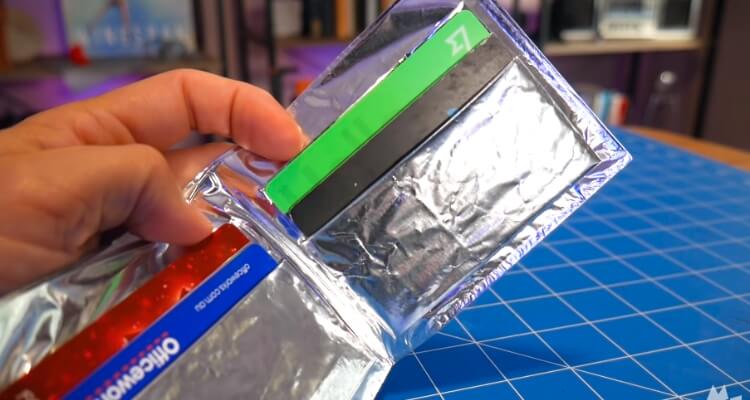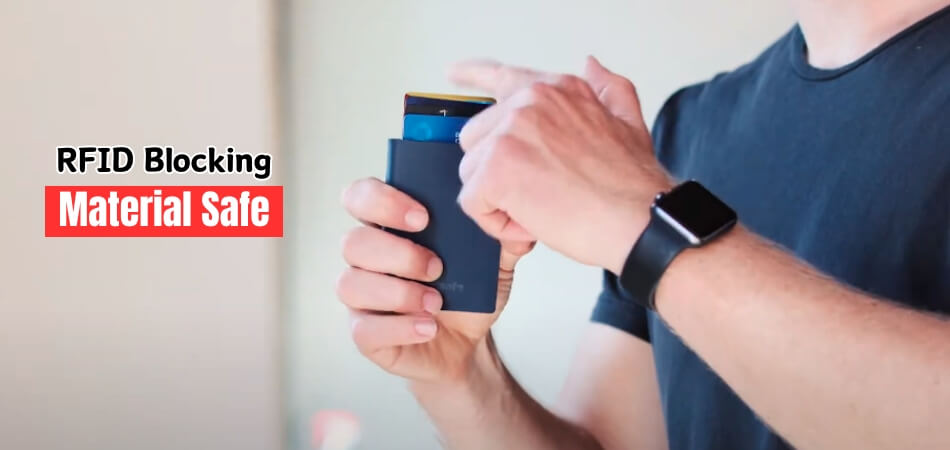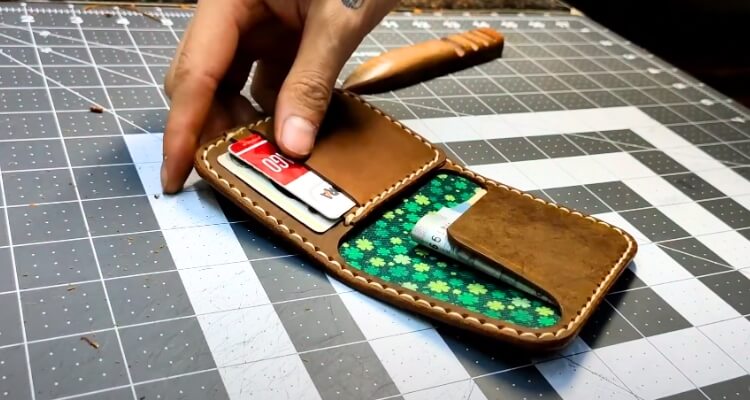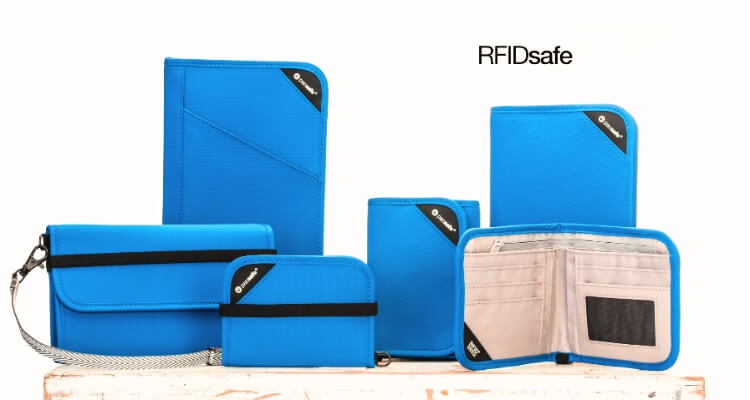The Wallet Defender Product shields your sensitive information from RFID skimming, the latest in wallet protection. There are concerns about safety as the digital age advances. Is RFID Blocking Material Safe?
Yes, RFID blocking material is generally safe. It’s designed to prevent unauthorized access to your RFID-enabled cards, like credit cards and passports, by blocking radio waves. As long as the material is properly tested and certified, it poses no health risks.
Wanna learn more about the safety and effectiveness of RFID blocking materials? Take a deeper look at this pressing issue with us.
What is RFID Blocking Material?
RFID blocking material is a specialized substance designed to prevent unauthorized access to personal information stored on RFID-enabled cards. It works by creating a shield that blocks radio waves, thus preventing scanners from reading the data stored on your cards.

This material is commonly used in products like Wallet Defender, which offers advanced RFID blocking to protect your identity.
The Wallet Defender incorporates RFID-blocking material to protect your sensitive information. Pickpocketing and skimming are effectively prevented by the material. When you’re using your cards in public, this extra layer of security gives you peace of mind.
Whether you’re traveling or simply going about your daily routine, RFID-blocking material provides an extra level of protection against identity theft. With Wallet Defender, you can confidently carry your cards knowing that your personal information is safe from digital theft.
Is RFID Blocking Material Safe?
Yes, RFID blocking material is generally safe. It serves to protect your personal information from unauthorized access by blocking radio frequency signals emitted by RFID chips in Wallets or passports. It’s commonly used in wallets, passport holders, and even clothing to prevent identity theft and fraud.

Material Composition
RFID blocking material is typically composed of a blend of metals or conductive materials like aluminum or copper. These materials create a shield that blocks electromagnetic fields, preventing RFID signals from being transmitted or received.
Effectiveness
The effectiveness of RFID blocking material depends on its composition and thickness. Thicker materials with higher metal content offer better protection against RFID skimming attempts, ensuring your sensitive information remains secure.
Compatibility
While RFID blocking material is generally safe, ensuring it doesn’t interfere with legitimate RFID transactions is essential. Some products are designed to block specific frequencies, so it’s crucial to choose materials compatible with the RFID technology used in your cards or devices.
Durability
RFID blocking materials are often durable and long-lasting, providing reliable protection over time. However, like any material, they can degrade with wear and tear, so it’s essential to inspect and replace worn-out items to maintain their effectiveness in safeguarding your personal information.
How Does RFID Blocking Material Work?
RFID blocking material operates by creating a shield that prevents radio frequency signals from reaching RFID chips. This shielding effect effectively blocks attempts to read or access the data stored on RFID-enabled cards or passports.

Electromagnetic Interference
RFID blocking material disrupts electromagnetic fields, preventing communication between RFID readers and chips. This interference ensures that sensitive information remains secure from unauthorized access.
Metallic Composition
Most RFID blocking materials contain metallic elements like aluminum or copper, which effectively absorb and reflect electromagnetic radiation. These metals act as a barrier, deflecting RFID signals away from the embedded chips, thus protecting your data.
Faraday Cage Principle
The functioning of RFID blocking material is based on the Faraday cage principle, which dictates that a conductive enclosure can block electromagnetic signals. When RFID-blocking materials surround your cards or passport, they essentially create a miniature Faraday cage, shielding them from outside RF signals.
Selective Blocking
Some RFID blocking materials are designed to selectively block certain frequencies while allowing others to pass through. This selective blocking ensures that legitimate RFID transactions can still occur, while unauthorized access is prevented.
Are There Any Risks Associated with RFID Blocking Material?
RFID blocking materials are commonly used in wallets, purses, and passport holders to prevent unauthorized access to personal information stored on RFID chips. While they offer security benefits, there are potential risks associated with their use.
Interference with RFID Functionality
Some RFID blocking materials can interfere with the functionality of RFID-enabled cards, such as access cards or keycards, making them ineffective when attempting to access secure areas or buildings.
Impact on Contactless Payment
Using RFID blocking materials in wallets or cardholders may hinder the ability to make contactless payments with credit or debit cards, requiring users to remove cards for transactions, which can be inconvenient.
False Sense of Security
Individuals using RFID blocking products may develop a false sense of security, assuming that all their personal information is completely safe from unauthorized access, leading to potential lapses in other security measures.
Durability and Longevity Concerns
Some RFID blocking materials may degrade over time with frequent use, potentially reducing their effectiveness in blocking RFID signals and requiring replacement to maintain security measures.
Environmental Impact
Many RFID blocking materials are made from synthetic materials, contributing to environmental issues such as pollution and landfill waste, especially if not disposed of properly.
Tips for Choosing Safe RFID Blocking Products
Concerns about RFID skimming have led to the rise of RFID blocking technology used by products like the Wallet Defender. When choosing one, consider these tips:

- Material Matters: Opt for products made with RFID-blocking materials like aluminum or carbon fiber. These materials effectively block electromagnetic signals, ensuring your cards remain secure.
- Size and Design: Choose a product that fits your needs and lifestyle. Whether it’s a wallet, card holder, or passport sleeve, ensure it’s convenient and easy to use daily.
- Independent Testing: Look for products that have undergone independent testing for RFID protection. This ensures they meet industry standards and provide reliable protection against unauthorized scanning.
- Durability and Quality: Prioritize products known for their durability and quality construction. A well-made RFID blocking product will last longer and offer better protection over time.
- Customer Reviews and Reputation: Check customer reviews and the reputation of the brand or manufacturer. Positive feedback and a good reputation indicate a trustworthy product that delivers on its promises.
FAQs for Is RFID Blocking Material Safe?
To help you make informed decisions about protecting your sensitive info, here are some frequently asked questions about RFID blocking materials.
Are There Any Health Risks Associated with RFID Blocking Material?
Generally, RFID blocking material is safe when properly tested and certified. It poses no significant health risks as it only blocks radio waves and does not emit harmful radiation.
Can RFID Blocking Material Interfere with The Functionality of My Cards or Devices?
In some cases, RFID blocking material can interfere with RFID-enabled cards or devices, particularly if they rely on proximity communication for functionality.
Does Rfid Blocking Material Completely Prevent All Forms of RFID Skimming?
While RFID blocking material significantly reduces the risk of RFID skimming, it may not completely prevent all forms of unauthorized access to your information.
Can I Still Use Contactless Payment Methods with RFID Blocking Material?
Using RFID blocking material may require you to remove your cards from wallets or holders to make contactless payments, but it doesn’t necessarily prevent their use altogether.
How Long Does RFID Blocking Material Typically Last?
RFID blocking material is often durable and long-lasting, providing reliable protection over time. However, like any material, it can degrade with wear and tear and may need replacement.
Are There Any Environmental Concerns Associated with RFID Blocking Material?
Some RFID blocking materials are made from synthetic materials, contributing to environmental issues such as pollution and landfill waste if not disposed of properly.
Can RFID Blocking Material Be Used with All Types of Cards and Passports?
RFID blocking material is compatible with most RFID-enabled cards and passports, but it’s essential to ensure compatibility with the specific frequency used by your cards or devices.
Does the Thickness of RFID Blocking Material Affect Its Effectiveness?
Thicker materials with higher metal content tend to offer better protection against RFID skimming attempts, ensuring your sensitive information remains secure.
Are There Any Alternatives to RFID Blocking Material?
Yes, there are alternative methods for protecting your information, such as RFID-blocking sleeves, wallets, or even simply keeping your cards in a separate, non-RFID-blocking compartment.
Last Word
The safety of your personal information is crucial in today’s digital age. RFID blocking material protects your cards and passports from unauthorized access. It’s important to choose certified materials to avoid any potential health risks.
When choosing RFID blocking products, consider things like compatibility, durability, and effectiveness. Though these materials provide security benefits, they can also cause interference with RFID functionality and a false sense of security
Consider the pros and cons next time you’re considering RFID blocking products. Is RFID Blocking Material Safe? Sure, but always prioritize safety and reliability.






